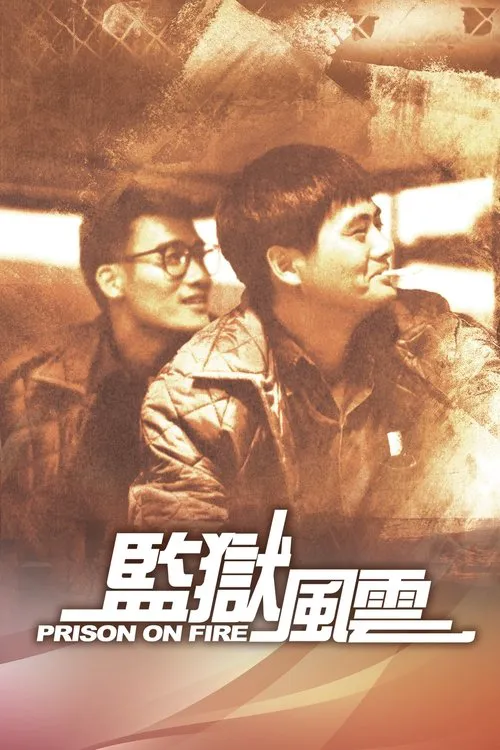Prison on Fire

Plot
Set in the late 1980s, "Prison on Fire" is a gritty 1988 Hong Kong film directed by Ringo Lam. The movie focuses on the struggles of Lo Ka Yiu, a talented young ad designer, after he's sentenced to prison for a manslaughter charge. Initially, Yiu finds himself navigating the harsh realities of life behind bars, where corruption and brutality reign supreme. He's at the mercy of the powerful prisoners from rival Triads, further exacerbating his situation. Upon his arrival at the prison, Yiu is taken under the wing of an elderly inmate, Chung Tin Ching, a seasoned vet who takes it upon himself to look out for his new companion. This unlikely mentorship sparks an interesting dynamic, as Ching sees Yiu's innocence and determination as an anchor to hold onto amidst the chaos. Ching is well aware of the intricate power struggles that play out within the prison's walls. Corruption, bribery, and intimidation are the currency of the place, with wardens who often look the other way when Triad members break the rules. Despite Ching's tough exterior, the harsh realities of prison life have taken their toll on him. As an experienced inmate, he knows the system's intricacies, but this knowledge also makes him deeply disillusioned with the entire system. Tensions rise as Yiu gets caught up in conflicts between rival gangs. A particular group, known for their violence, becomes a thorn in Yiu's side, and Ching is forced to intervene, drawing the attention of the ruthless leader. This confrontation puts Ching right in the crosshairs of the head of security, a ruthless individual hell-bent on exerting power and control. Throughout the film, scenes alternate between the intense and the mundane. Life behind bars isn't just about the brutal conflicts – it's also about the everyday struggles of trying to survive within the dehumanizing environment. Inmates have limited freedom, and the strict rules govern even the smallest aspects of their lives. These scenes add to the sense of claustrophobia and despair that permeates the narrative. Chung Tin Ching finds himself increasingly entangled in Yiu's fate, which places a heavy burden on his shoulders. As Ching navigates the treacherous world of the prison, he makes difficult choices that ultimately put him at odds with his fellow inmates, the corrupt authorities, and, most poignantly, his own conscience. Meanwhile, Yiu struggles with adapting to the harsh conditions and confronting the harsh realities of his own actions. The film's build-up reaches a crescendo as Ching, driven by his responsibility towards Yiu, faces off against the head of security in an explosive confrontation. The tension is palpable as they engage in a battle of wills. The final confrontation is a stark reminder of the film's themes of survival, loyalty, and redemption in the face of overwhelming power. Ultimately, "Prison on Fire" offers a gripping portrayal of a broken system and the people trapped within it. Through the eyes of Lo Ka Yiu and Chung Tin Ching, audiences experience the raw emotion and desperation that permeate life behind bars. The film presents a scathing critique of systemic corruption, while simultaneously paying homage to the complexities and nuances of the characters that inhabit this world. It's a thought-provoking exploration of the moral dilemmas faced by those who walk the thin line between survival and despair.
Reviews
Recommendations




